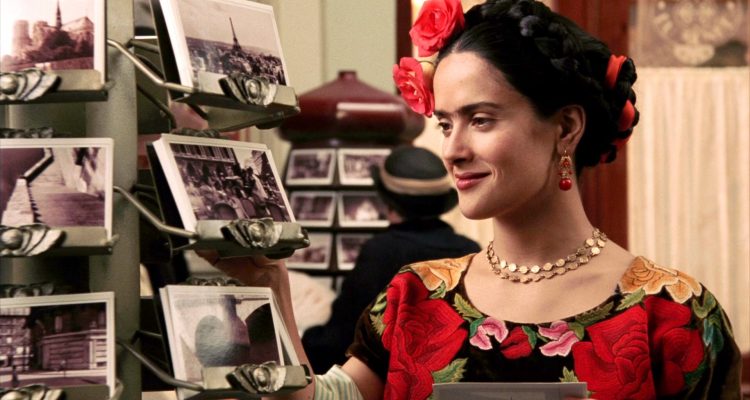The creative battle between Harvey Weinstein and filmmakers behind “Frida” — including director Julie Taymor and uncredited screenwriter Edward Norton — is fairly well known. However, the full extent of the disgraced producer’s behavior has not been known until now. Weinstein’s history of sexual harassment and assault was kept under wraps for decades, thanks to a well-oiled settlement machine around him. However, Salma Hayek signed no such paperwork, and she’s adding her voice to the chorus of those sharing their heartbreaking stories about their encounters with Weinstein.
In a must-read piece for The New York Times, Hayek details her experience working with Weinstein on “Frida.” It was a project she long shepherded, and given Miramax‘s reputation at the time, she fought to bring the project under their roof. The rising filmmaker and actress thought she had struck gold when Weinstein agreed to make the movie. However, that’s where things took a turn. Here’s an excerpt from her piece:
I was so excited to work with him and that company. In my naïveté, I thought my dream had come true. He had validated the last 14 years of my life. He had taken a chance on me — a nobody. He had said yes.
Little did I know it would become my turn to say no.
No to opening the door to him at all hours of the night, hotel after hotel, location after location, where he would show up unexpectedly, including one location where I was doing a movie he wasn’t even involved with.
No to me taking a shower with him.
No to letting him watch me take a shower.
No to letting him give me a massage.
No to letting a naked friend of his give me a massage.
No to letting him give me oral sex.
No to my getting naked with another woman.
No, no, no, no, no …
And with every refusal came Harvey’s Machiavellian rage.
I don’t think he hated anything more than the word “no.” The absurdity of his demands went from getting a furious call in the middle of the night asking me to fire my agent for a fight he was having with him about a different movie with a different client to physically dragging me out of the opening gala of the Venice Film Festival, which was in honor of “Frida,” so I could hang out at his private party with him and some women I thought were models but I was told later were high-priced prostitutes.
The range of his persuasion tactics went from sweet-talking me to that one time when, in an attack of fury, he said the terrifying words, “I will kill you, don’t think I can’t.”
The rage Weinstein felt at being rejected stayed with him throughout the filming of the movie. He threatened to shut down production, insulted Hayek, and was enraged at Taymor, even when test screenings for the film scored high. Perhaps worst of all, he pushed Hayek into filming a sex scene with Ashley Judd, and the cumulative toll of having to deal with Weinstein, his anger and unwanted advances, saw Hayek have a “nervous breakdown” on the day that sequence was shot. Once filming wrapped, Hayek was so “emotionally distraught that I had to distance myself during the postproduction.”
The team would have the last laugh when “Frida” won two Oscars, for Best Makeup and Best Original Score (it was nominated for a total of five, including Best Actress). However, it would only be years later when Weinstein would admit to Hayek, “You did well with ‘Frida’; we did a beautiful movie.” It would be even longer until Hayek could feel strong enough to share her story.

